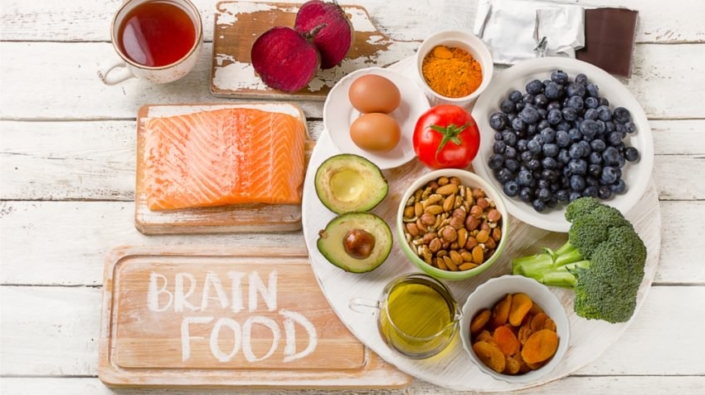Blog
- Nutrition
Your brain on food!
- Yeli

Have you noticed how you feel after a big meal? Let’s say a high carb, high fat meal… Do you feel alert and motivated to get some work done or do you rather feel sluggish and tired?
According to an article published in WebMed, the science of how food affects our moods is based on this equation: Dietary changes bring about changes in our brain structure, chemistry, and physiology, which lead to — changes in behavior!
As stated by Eva Selhub, MD when talking about Nutritional Psychiatry, your brain is always “on.” It takes care of your thoughts and movements, your breathing and heartbeat, your senses — it works hard 24/7, even while you’re asleep. This means your brain requires a constant supply of fuel. That “fuel” comes from the foods you eat — and what’s in that fuel makes all the difference: Eating high-quality foods that contain lots of vitamins, minerals, and antioxidants nourishes the brain and protects it from oxidative stress — the free radicals produced when the body uses oxygen, which can damage cells.
Diets high in refined sugars, for example, are harmful to the brain. In addition to worsening your body’s regulation of insulin, they also promote inflammation and oxidative stress. Put simply, what you eat directly affects the structure and function of your brain and, ultimately, your mood.
Tammy Lakatos Shames, RDN, CDN, argues that one of the effective things anyone can do to boost their mood is to eat an overall healthy diet that contains ample vegetables and fruits, and includes adequate lean proteins and healthy fat. She offers these examples:
- Foods high in omega-3 fatty acids, such as salmon, sardines, walnuts, flax seed and chia seeds: low levels of omega-3 fatty acids are linked to depression and anxiety. In fact, more than 30 clinical trials have tested different omega-3 preparations in people with depression. Overall, researchers have noted that omega-3 polyunsaturated fatty acids may be mood stabilizers, playing a role in mental well-being.
- Green leafy vegetables, such as spinach, kale and arugula: these are a good source of folate; research shows that low levels of folate are linked to depression. Folate deficiency may also impair the metabolism of neurotransmitters that are important for mood, including serotonin, dopamine and noradrenaline,
- Vitamin D-rich foods, including egg yolks, cheese and fortified foods such as orange juice, milk and soy milk: people who are deficient in vitamin D are more likely to be depressed, and there may be a link between vitamin D deficiency and mood disorders, like seasonal affective disorder. Vitamin D may also increase your body’s feel-good chemical, serotonin.
- Whole grains, such as oatmeal, quinoa, millet, amaranth, brown and wild rice, and bulgur: These are rich in B vitamins. B1 helps to turn glucose into energy, B5 helps make acetylcholine, which is important for learning and memory, B6 helps convert tryptophan into serotonin, your body’s feel-good chemical and B12 helps with the production of mood-regulating chemicals, serotonin and dopamine.
- Fermented foods, including kombucha, kimchi and sauerkraut: Fermented foods contain probiotics that may help to restore the gut microbiome and fight against mental health issues.
What does it mean for you?
Start paying attention to how eating different foods makes you feel — not just in the moment, but the next day. Try eating a healthy and balanced diet for two to three weeks — that means cutting out as much processed foods as you can and all refined sugar. See how you feel. Then slowly introduce foods back into your diet, one by one, and evaluate your overall mood and well-being. If you notice a certain food makes you feel bad when you reintroduce it, then this food is most likely enhancing inflammation in your system, hence having a negative effect in your mood.
